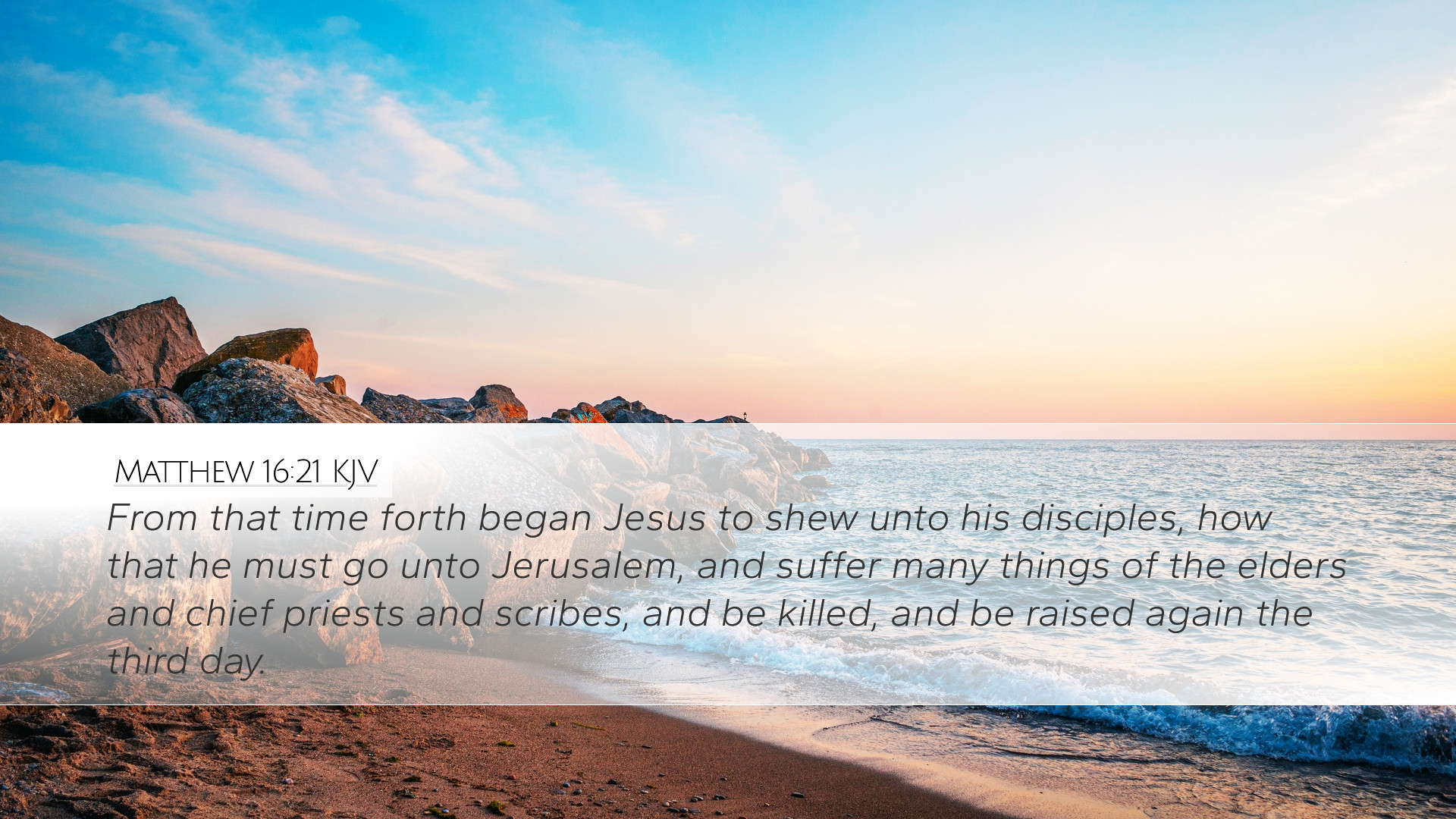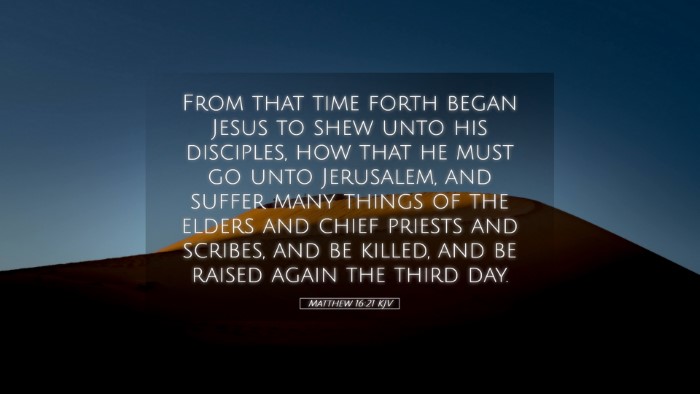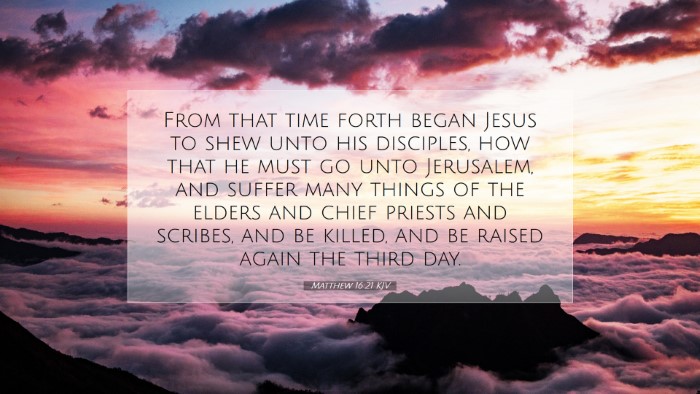Commentary on Matthew 16:21
Verse: Matthew 16:21 - "From that time forth began Jesus to show unto his disciples, how that he must go unto Jerusalem, and suffer many things of the elders and chief priests and scribes, and be killed, and be raised again the third day."
Introduction
This pivotal verse marks a significant turning point in the Gospel of Matthew. Here, Jesus begins to explicate the nature of His mission and the impending suffering He will endure. The insights drawn from public domain commentaries such as those by Matthew Henry, Albert Barnes, and Adam Clarke provide profound theological reflections on the implications of this passage for believers.
The Nature of Christ’s Revelation
Matthew Henry emphasizes that Jesus "began to show" His disciples the necessity of His suffering. This indicates a strategic disclosure about His purpose and the inevitable path that He must walk. It reveals the gradual process of revelation where Jesus unveils deeper truths at the right moments.
Albert Barnes notes that this was a deliberate act of teaching, which indicates Jesus' role as a master guiding His disciples. He presents the notion that suffering is integral to the Messiah's mission, which challenges the traditional expectations of a triumphant political deliverer. This serves as a reminder for the disciples that spiritual understanding often requires grappling with difficult truths.
The Necessity of Suffering
In this passage, the phrase "must go unto Jerusalem" denotes the divine necessity of Jesus' journey. Adam Clarke elaborates on the necessity of Christ's suffering, indicating that it was ordained by God to fulfill the Scriptures. The language used implies that the events to unfold are part of a preordained plan, essential not only for Jesus but for the salvation of humanity.
Theological Implications
Both Matthew Henry and Albert Barnes reflect on the theological significance of this 'must.' It is not merely a prediction but an essential component of the divine narrative. Jesus must suffer to be the perfect sacrifice, meeting the prophetic requirements laid down in the Old Testament. This understanding reinforces the sovereignty of God in orchestrating the redemptive plan.
The Role of Human Actors
Here, Christ mentions "elders and chief priests and scribes" as the agents of His suffering. This starkly highlights that opposition to Jesus would arise from the religious leaders of Israel. Adam Clarke comments that the rejection by the very leaders who should have recognized Him reflects the tragic reality of spiritual blindness. This serves as a warning about the dangers of holding onto tradition that blinds one to divine revelation.
Understanding Discipleship
As Jesus reveals the necessity of His suffering, He also implicitly teaches His disciples about the nature of true discipleship. Matthew Henry posits that following Christ entails bearing the cross, highlighting an ethos of sacrifice that must be adopted by His followers. The disciples must grapple with the implications of this teaching — that following Christ may lead to their own suffering.
Prophecy of the Resurrection
The verse concludes with the powerful promise of resurrection — "and be raised again the third day." This underscores the hope that is woven into the narrative of suffering. Albert Barnes notes that while the suffering must come, it does not have the final word. This proclamation serves as a reminder of divine hope and vindication that follows periods of despair.
The Significance for Believers
This passage serves as a foundational teaching for all believers. It emphasizes that while Christians may encounter trials and tribulations, these are not without purpose or hope. The assurance of resurrection is a central tenet of the Christian faith and reflects the ultimate triumph of God over sin and death.
Conclusion
In conclusion, Matthew 16:21 is rich with meaning and complexity. The insights from Matthew Henry, Albert Barnes, and Adam Clarke provide a multifaceted understanding of Jesus’ mission, the necessity of suffering, the roles of human actors in the divine plan, and the hope inherent in resurrection. For pastors, students, theologians, and scholars, this passage serves as both a challenge and an encouragement – to embrace the cross while holding fast to the hope of resurrection.
Key Takeaways
- Divine Necessity: The suffering of Christ was preordained and necessary for the fulfillment of prophecy.
- Spiritual Revelation: Jesus' teaching reveals that understanding often unfolds gradually.
- Opposition: The rejection of Christ by religious leaders highlights the danger of spiritual blindness.
- Discipleship: To follow Christ is to embrace the call to suffer in pursuit of a greater purpose.
- Hope in Resurrection: The promise of resurrection assures believers that suffering is not the end of the story.


